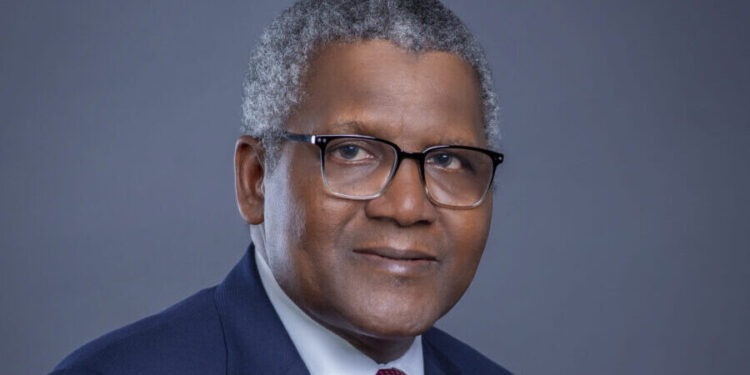When you hear the term “self-care” in Nigeria or across Africa, what truly comes to mind? For many in Lagos or Accra, it might mean taking an afternoon to unwind, treating yourself to a new outfit at Balogun Market, or simply enjoying a glass of zobo at home after a stressful day. While pampering yourself has its place, the heart of self-care is much deeper than the quick escapes shared on social media or found in marketing campaigns.
In reality, self-care goes beyond indulgence or retail therapy. According to mental health experts, it’s about finding a healthy balance between discipline and enjoyment – knowing when to rest, when to push, and how to identify what truly refuels you, not just what’s trending in TikTok skits or Instagram reels. “People need to broaden their idea of what self-care is,” explains Dr. Paula Gill Lopez, a renowned psychologist. What’s healing for one person may not fit for another, so the key is discovering what genuinely restores you.
So, how do you actually define self-care in the West African context? Here’s what mental health professionals have shared on building a routine that goes beyond buzzwords and speaks directly to your personal and cultural needs.
Meet the experts: Chloe Carmichael, PhD, is a therapist and author specializing in anxiety management; Dr. Raquel Martin is a psychologist and professor; Dr. Paula Gill Lopez leads psychological and educational consultation at Fairfield University; and Dr. Bella Grossman is a psychologist at Northwell Katz Institute.
So, What Really Defines Self-Care?
Across Nigeria, Ghana, and beyond, self-care is anything but a one-size-fits-all concept. “Even when you look at the root of ‘care’, it refers to ‘concern’ in Old English,” says Dr. Carmichael. The truth is, your concerns in Enugu may not mirror someone else’s in Kumasi – and that’s perfectly fine. What matters is crafting habits and routines that bring you calm, strength, and resilience, whether that’s a trip to your favourite barber in Yaba or prayer time at dawn.
It’s worth noting that self-care is rooted in activism and social justice. Dr. Bella Grossman points out that the term found prominence through Audre Lorde, a Black, queer feminist, who argued that taking care of oneself – especially for those from marginalised backgrounds – is a radical act of survival and resistance. For many, especially women and those in underserved communities across Africa, embracing self-care is an act of cultural and personal empowerment.
So, before you dismiss self-care as just another Western fad, remember its origins are steeped in liberation. Dr. Raquel Martin emphasizes that historically, many communities were denied a voice or the means to prioritise their well-being. To care for your body and mind, then, becomes both a necessity and a victory; it’s not selfish to put your health first. As Dr. Martin puts it: “Self-care is about ensuring your own well-being – not at the expense of others, but so you can show up for them.” It doesn’t require expensive spas or international travel. Simple routines, like evening strolls, a call with a relative, or taking a quiet moment with a devotional, can make a real difference.
How To Create a Self-Care Routine That Works for You
Feeling overwhelmed by the idea of “self-care”? You’re not alone. Experts advise breaking it into smaller, manageable parts – imagine “self-care buckets” that cover different areas of your life. Your needs may cut across physical health, relationships, spirituality, emotions, work, and environment. In a region where the demands of daily life can drain you, this approach helps keep well-being within reach, even on the busiest days.
While self-care is often linked to comfort and relaxation, creating a meaningful practice takes self-discipline and intentionality. According to Dr. Carmichael, focusing only on instant gratification may bring a brief sense of relief but won’t sustain your overall well-being. Instead, aim for routines that nurture you in the long term.
Ready to get started? Below are important self-care “buckets” and suggestions from experts. Consider writing them out, tracking progress in your phone, or discussing them with a trusted friend or professional. Remember, what matters most is consistency, not perfection.
Physical Self-Care
Physical well-being is foundational—not just gym sessions, but everyday habits that keep your body resilient. For many Nigerians and West Africans, this could mean brisk evening walks, joining a local dance class, or playing football with friends. It might also be as simple as prioritising good sleep, hydrating regularly, going for your routine health check-ups, or giving yourself time to rest during harmattan’s dry spells or rainy season’s fatigue. Even using that massage oil your Auntie sent from the village or taking a long “everything shower” counts.
Social Self-Care
Social connection is part of our DNA as Africans. Whether it’s attending Owambe parties, Friday mosque prayers, Sunday services, or spending time at the football viewing centre, nurturing relationships is vital. Make time for friends and family – a quick phone call, sharing a meal of jollof rice, or sending jokes to your WhatsApp group. Building and maintaining supportive relationships helps refill your self-care tank, no matter how busy life gets.
Spiritual Self-Care
Spiritual well-being doesn’t belong to a single tradition. For many, it includes prayer, attending religious gatherings, joining a choir, meditating, or practising yoga. Dr. Martin notes that connection to something larger than oneself gives meaning and hope, especially in challenging times. For others, quiet moments spent in nature – watching the sunrise, sitting under a mango tree, or tending to a garden – can provide grounding and peace.
Emotional Self-Care
Managing your emotional health is crucial in a region where stigma around mental health still lingers. Try journaling, confiding in a trusted friend, joining a faith-based discussion group, or seeking professional support when needed. Setting boundaries – like saying no to draining commitments – is powerful. Appreciation and gratitude, whether through prayer or simply counting your blessings, have been linked to improved well-being, according to a study on gratitude and mental health. Dr. Gill Lopez advises: “When you take time for gratitude, your perspective on life shifts for the better.”
Professional Self-Care
Work is a big part of African life, but “hustle culture” can make it easy to neglect your well-being. Self-care in the professional space means setting boundaries to prevent burnout—like logging off after office hours, communicating needs with your boss, or taking short breaks to stretch and refocus. Professional self-care could also mean networking, seeking mentorship, or investing in skills that move your career forward. Remember: prioritising your well-being at work doesn’t mean neglecting your job; it ensures your long-term effectiveness.
Environmental Self-Care
Your surroundings play a big role in your mood and productivity. Dr. Martin recommends creating a space—no matter how small—that brings you comfort. This could mean opening windows to let breeze through your parlour, tidying up your room, lighting an incense stick, placing fresh flowers in your shop, or finally clearing that kitchen drawer that bothers you. A supportive environment helps you feel centred and ready to face each day’s challenges.
Self-care will look different depending on where you are in West Africa and what matters most to you. What’s universal, though, is its importance: looking after yourself—body, mind, and soul—is not only allowed, but essential for thriving in our communities.
How do you practice self-care in your daily life, and what challenges or successes have you found on your journey? Your story can inspire others in our community. Share your thoughts in the comments, and let’s learn from each other!
We want to hear from you! How do you practice self-care in Nigeria or your country? Have a unique local wellness tip, a personal story, or advice that could help others? Get your experiences published—send your story or tips to story@nowahalazone.com for a chance to be featured.
Need support or have questions? Contact us at support@nowahalazone.com. Keep the conversation going: follow us on Facebook, X (Twitter), and Instagram for more lifestyle, health, and community updates!










